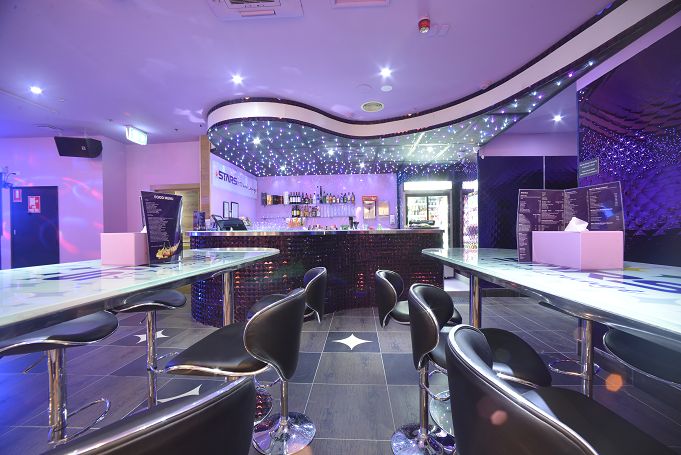Las Vegas Karaoke Bar Seeks the Right to Reopen during the Pandemic from buzai232's blog
Las Vegas Karaoke Bar Seeks the Right to Reopen during the Pandemic
A Las Vegas karaoke bar has filed a lawsuit against Nevada’s COVID-19 task force and others, seeking a restraining order that would allow the bar to reopen.To get more news about Melbourne City Karaoke, you can visit starsktv.com.au official website.
Cat’s Meow of Las Vegas filed its complaint in federal court last week, claiming the COVID-19 mitigation restrictions put in place by the city and state unfairly target nightclubs when similar businesses have been allowed to reopen.

According to News3LV, the local NBC affiliate, the owners of the downtown bar argue the current guidance on closures — part of the state’s “Roadmap to Recovery” reopening plan — are discriminatory when it comes to karaoke bars, but not karaoke venues.Because Cat’s Meow is required to hold a “nightclub” license, the state guidance says the karaoke bar is not allowed to reopen, News3LV reported.
Cat’s Meow also operates a location in New Orleans, according to Eater.
The list of defendants touches nearly every corner of government in Nevada: the state’s COVID-19 task force, Gov. Steve Sisolak, Attorney General Aaron Ford, Nevada Secretary of State Barbara Cegavske, the city of Las Vegas, Las Vegas Mayor Carolyn Goodman, Las Vegas Department of Public Planning and director Robert Summerfield, and COVID-19 task force response director Caleb Cage.
Due to the coronavirus pandemic, Sisolak declared a state of emergency in Nevada on March 12, according to the karaoke bar lawsuit. Five days later, he announced the steps the state would take to try to stop the rampant spread of the pandemic, including the closure of nonessential businesses.
On March 20, the governor issued “Emergency Regulations” to distinguish between essential and nonessential businesses, the lawsuit states. Among the businesses defined as nonessential were live entertainment venues, restaurants with only in-house dining options, bars, nightclubs, and others.Sisolak unveiled the state’s reopening plan in late April, revising it days later to permit restaurants and bars licensed to serve food to provide on-site dining as long as social distancing could be maintained, the karaoke bar lawsuit says. Nightclubs and entertainment venues were not allowed to open at that point.
At the end of May, more businesses were allowed to reopen, including bars and breweries not licensed to serve food.
But nightclubs still were not allowed to reopen, the lawsuit states.
The state’s COVID-19 Mitigation and Management Task Force was established in August, at the same time a new recovery plan was put in place. Sisolak delegated the authority to enforce the provisions of the new plan to the task force, according to the karaoke bar lawsuit.
In September, under the new guidance, Sisolak issued an order that “did not supercede the prohibition on nightclubs opening found” in one of his previous orders, and “specifically excluded from the prohibition ‘ambient music to create or enhance a mood or atmosphere that is incidental or ancillary to the activity or location.’”
Post
| By | buzai232 |
| Added | Jul 17 '22, 08:39PM |
Tags
Rate
Archives
- All
- December 2017
- November 2017
- October 2017
- September 2017
- June 2017
- May 2017
- December 2018
- November 2018
- October 2018
- September 2018
- August 2018
- July 2018
- June 2018
- May 2018
- April 2018
- March 2018
- January 2018
- December 2019
- November 2019
- October 2019
- September 2019
- August 2019
- July 2019
- June 2019
- May 2019
- April 2019
- March 2019
- January 2019
- December 2020
- November 2020
- October 2020
- September 2020
- August 2020
- July 2020
- June 2020
- May 2020
- April 2020
- March 2020
- January 2020
- December 2021
- November 2021
- October 2021
- September 2021
- August 2021
- July 2021
- June 2021
- May 2021
- April 2021
- March 2021
- February 2021
- January 2021
- December 2022
- November 2022
- October 2022
- September 2022
- August 2022
- July 2022
- June 2022
- May 2022
- April 2022
- March 2022
- February 2022
- January 2022
- December 2023
- November 2023
- October 2023
- September 2023
- August 2023
- July 2023
- June 2023
- May 2023
- April 2023
- March 2023
- February 2023
- January 2023
- December 2024
- November 2024
- October 2024
- September 2024
- April 2024
- January 2025
The Wall